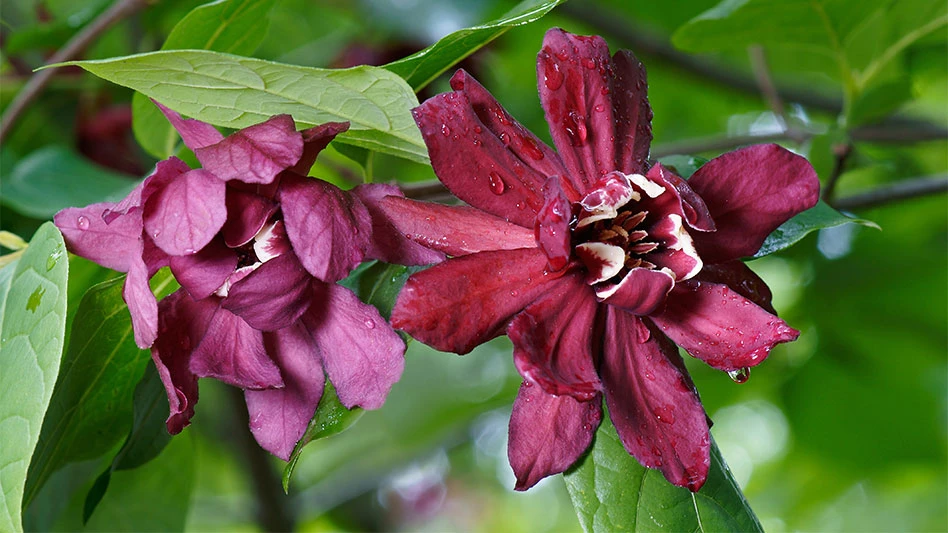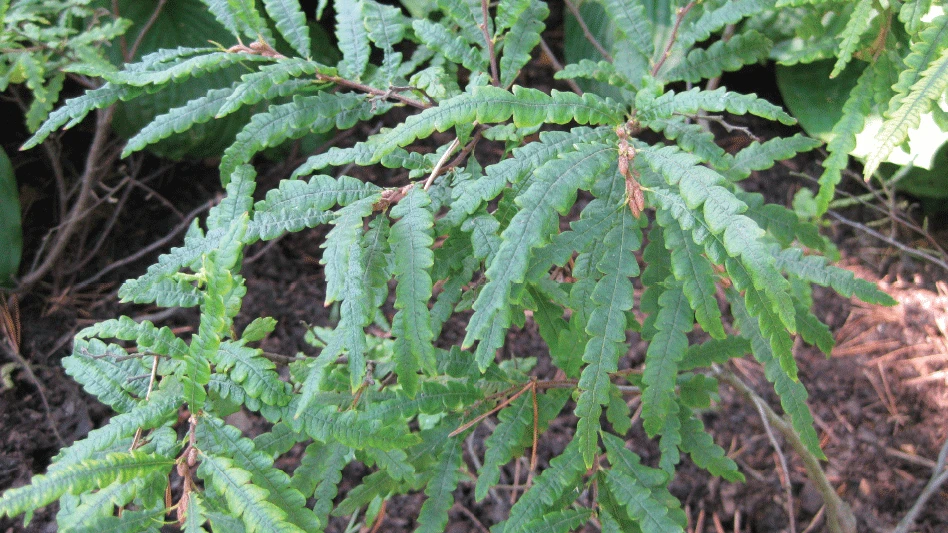 The Home Depot is requiring all plants that have been treated with neonicotinoids to bear a special tag informing customers that the plant has been exposed to that specific type of insecticide.
The Home Depot is requiring all plants that have been treated with neonicotinoids to bear a special tag informing customers that the plant has been exposed to that specific type of insecticide.
The retailer is concerned about the effect that neonicotinoid insecticides could be having on pollinator populations.
Neonicotinoid insecticides include any of the following active ingredients: acetamiprid, clothianidin, imidacloprid and dinotefuran. They are used to defend trees, shrubs and plants against destructive invasive species like the Japanese beetle, hemlock woolly adelgid, emerald ash borer and Asian longhorned beetle. In some cases, neonicotinoids are approved regulatory treatments for certification and interstate movement of nursery and greenhouse crops. In others, they are used to manage the development of pesticide resistance to other treatment options.
“We’ve been in communication with the Environmental Protection Agency, insecticide industry and our suppliers for many months to understand the science and monitor the research,” says Stephen Holmes, Home Depot director of corporate communications. “We’re requiring all of our live goods suppliers to label plants that they have treated with neonicotinoids by fourth quarter 2014.”
Growers that sell to the Home Depot need to provide a secondary tag for all plant material of all sizes. The 1-inch by 4½-inch tag contains the following statements on the front: “This plant is protected from problematic aphids, whiteflies, beetles, mealybugs, and other unwanted pests by Neonicotinoids.” The back of the tag reads, “Treated by Neonicotinoids. These pesticides are approved by the EPA.” It also includes a link to the Home Depot’s website for more information.
Rick Fletcher is technical service manager for Nufarm America’s turf and ornamentals business. He was also part of the advisory committee to the grower group working with Home Depot on the neonic issue. He believes the tag could be a boon and not a hindrance.
“If you saw this tag in a pot, I’ll bet that 90 percent of people won’t even read it, and the other 10 percent will look at it and say ‘Wow, this plant’s protected,’” he says. “‘It’s worth more. I’m going to buy this one. It’s been protected with an insecticide, so that when I get it home it doesn’t fall over and die.’”
Still, some growers are concerned about the stigma attached to neonicotinoids. J.Berry Nurseries supplies plants to the Home Depot, and the nursery has changed its practices to avoid the use of neonicotinoids. Jim Berry, the president of J. Berry Nurseries, says his growers had previously used neonicotinoid insecticides on tropical hibiscus to control whiteflies. But since the issue had become publicly recognized as a practice that potentially impacted bees and other pollinators, they started looking at alternative practices.
“We view it as the labeling of a plant with that tag is potentially creating customers’ perception that that plant should not be purchased,” Berry says. “Whether it’s a valid assumption or not, perception is reality. So you have to go with that. We certainly want consumers to be attracted to our plants instead of repelled by them.”

Differing viewpoints
Not everyone agrees about the best course of action. Bayer CropScience North America said in a statement on the Home Depot decision that plant protection products, including neonicotinoids, are extensively reviewed by the EPA to make sure they are safe for humans and the environment before they reach the market. Neonicotinoids have been shown to have minimal environmental impact while protecting plants from destructive pests. More than 100 studies have concluded that when used according to label instructions, neonicotinoids are not harmful to bee colonies.
A report issued last year by the United States Department of Agriculture (USDA) and the EPA said honeybee health is being impacted by a wide range of factors including lack of forage, disease and parasites. The USDA identified the Varroa mite as the most important factor related to honey bee colony decline.
If neonics were a mystery killer, then not using them should translate into healthier bees; but that’s not what has happened, according to the report.
“In places where neonicotinoid pesticides have been banned, such as France and Italy, there’s no evidence that honeybee populations have rebounded,” says Hannah Nordhaus, beekeeper and author of the bestseller The Beekeepers’ Lament.
And in Australia, which has never reported a case of colony collapse disorder, neonicotinoids have been in widespread use for more than a decade.
“They still use neonics literally by the railcar,” Fletcher says of growers down under. One major difference between Australia and the U.S. is that bees in Australia have not been threatened by invasion of the Varroa mite.
“What most of the bee scientists will tell you is we have a multitude of facts and nobody knows the single weighing of each fact,” Fletcher says. “But you have a mite parasite that is transmitting viruses and bacteria into hives and you have cultural management practices of beekeepers in an industry that puts them on trucks, drives them around the country, feeds them corn syrup, and expects them to be thriving when they arrive.”
Other retailers are considering their options, as well. Lowe’s recently sent out a questionnaire to its vendors about the brands they carry on their retail shelves.
“Lowe’s is still on the fence,” Fletcher says. “They are asking some more business-directed questions, but they still haven’t come down with a decision.” The questionnaire covered the basics, like, “Which one of these products carry neonics that harm bees?” but also the follow-ups “If neonics are banned, what would you replace them with? Are these replacements more or less toxic to bees?” and the all-important “Would our cost of buying flowers go up and would the quality go down?”
More research incoming
Several groups are searching for the answers to those questions. Growing Matters is a coalition of individuals and organizations headed by Bayer CropScience, Syngenta and Valent U.S.A., with support from Mitsui Chemicals Agro Inc. In December 2014, Growing Matters published a study entitled The Value of Neonicotinoids in Turf and Ornamentals, on its website, www.growingmatters.org.
The study includes the results of a survey conducted by AgInformatics, a group of independent agricultural economists and scientists, that examines the value of neonicotinoids by assessing how turf and ornamental professionals are using these tools—and the impact it would have on them if these insecticides were no longer available.
The survey interviewed 750 professionals, members of AmericanHort, PLANET, Society of American Florists and the Tree Care Industry Association. Of the nursery respondents, the survey results show that green industry professionals fear the loss of neonicotinoids would reduce the quality of their plants and services, increase costs and negatively impact their ability to manage pest resistance.
 When asked what they would do if neonicotinoids were no longer available, 79 percent of nursery respondents said there are either “no acceptable alternatives” or “not enough acceptable alternatives” to neonicotinoids to meet their pest management needs.
When asked what they would do if neonicotinoids were no longer available, 79 percent of nursery respondents said there are either “no acceptable alternatives” or “not enough acceptable alternatives” to neonicotinoids to meet their pest management needs.
The survey also showed professionals’ biggest concerns with the current alternative pesticides: 78 percent of respondents expect more applications and higher cost; 67 percent expect increased management time; and 38 percent expect to see a greater health and safety risk from neonic alternatives.
AmericanHort and the Horticultural Research Institute, in partnership with the Society of American Florists, recently created the Bee and Pollinator Stewardship Initiative taskforce to look deeper into this issue. The taskforce is composed of horticultural professionals and supported by research scientists. It’s their view that pesticides may play some role in the concerns about pollinator health but are likely to be one relatively small factor in a complex array of challenges.
The taskforce has three main components in its plan:
- Develop a bee and pollinator stewardship program that improves the circumstances surrounding pollinator health concerns.
- Fund research that will help answer key science questions that support the stewardship program.
- Spread the word to horticulture industry communities and customers how the program has a positive impact on pollinators and still allows us to mitigate the spread of invasive pests that threaten our natural environment.
One goal of the taskforce is to identify research projects that will answer questions like how and when pollinators interact with plant material and the steps our industry can take in easing some of the challenges pollinators face.
The group has moved swiftly to identify research project priorities and has begun identifying ways some growers can bolster pollinator health through providing forage, water and habitat at plant production sites.
Learn more about the initiative at http://bit.ly/13h2UGe.
Several recently introduced products have new active ingredients or modes of action, but as far as pollinator safety is concerned, they are no safer than the products they would be replacing. Other products are in the pipeline, but will not be ready anytime soon.
“Pollinator-friendly products is a great goal, but you don’t just go into the lab and five minutes later walk out with something,” Fletcher says.
In the meantime, growers must either accept the potential consumer stigma associated with neonicotinoids, or make the necessary changes and hope their alternative methods work as well.
“It’s the cost of the tag and it’s the impact on consumers, maybe causing them to avoid purchasing plants with that tag,” Berry says. “It’s a double risk.”
Get curated news on YOUR industry.
Enter your email to receive our newsletters.
Explore the January 2015 Issue
Check out more from this issue and find your next story to read.
Latest from Nursery Management
- How impending tariffs and USDA layoffs impact the horticulture industry
- Shifting the urban environment
- These companies are utilizing plastic alternatives to reduce horticultural waste
- How to create a sustainable plant nursery
- Lamiastrum galeobdolon ‘Herman’s Pride’
- One of rarest plants on earth: Tahina spectabilis
- Leading Women of Horticulture: Angela Labrum, Bailey Nurseries
- Get to know Pat Reilly with NewGen Boxwood and the American Boxwood Society







